Life
Sign up for our newsletter
We summarize the week's scientific breakthroughs every Thursday.
-
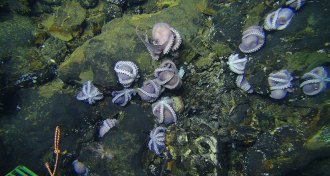 Animals
AnimalsHow a deep-sea geology trip led researchers to a doomed octopus nursery
A healthy population of cephalopods could be hiding nearby, though, a new study contends.
-
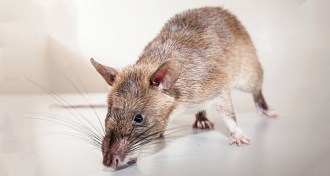 Animals
AnimalsWith a little convincing, rats can detect tuberculosis
TB-sniffing rats prove more accurate in detecting infection, especially in children, than the most commonly used diagnostic tool.
By Yao-Hua Law -
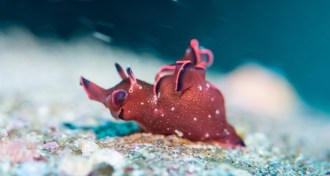 Neuroscience
NeuroscienceRNA injected from one sea slug into another may transfer memories
Long-term memories might be encoded in RNA, a controversial study in sea slugs suggests.
-
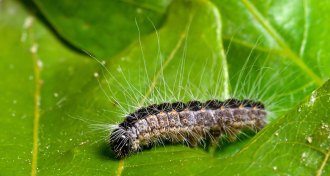 Animals
AnimalsThese caterpillars march. They fluff. They scare London.
Oak processionary moths have invaded England and threatened the pleasure of spring breezes.
By Susan Milius and Aimee Cunningham -
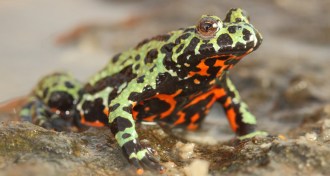 Animals
AnimalsA deadly frog-killing fungus probably originated in East Asia
The disastrous form of Bd chytrid fungus could have popped up just 50 to 120 years ago.
By Susan Milius -
 Life
LifeThere’s a genetic explanation for why warmer nests turn turtles female
Scientists have found a temperature-responsive gene that controls young turtles’ sex fate.
-
 Artificial Intelligence
Artificial IntelligenceThis AI uses the same kind of brain wiring as mammals to navigate
This AI creates mental maps of its environment much like mammals do.
-
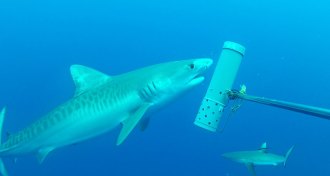 Animals
AnimalsHere’s how to use DNA to find elusive sharks
Hard-to-find sharks that divers and cameras miss appear in genetic traces in the ocean.
By Susan Milius -
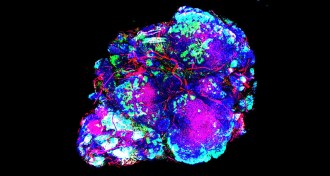 Health & Medicine
Health & Medicine50 years ago, starving tumors of oxygen proposed as weapon in cancer fight
Starving cancerous tumors of oxygen was proposed to help kill them. But the approach can make some cancer cells more aggressive.
-
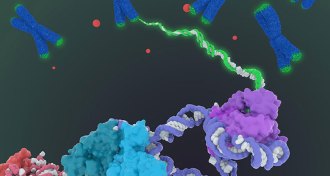 Health & Medicine
Health & MedicineAn enzyme involved in cancer and aging gets a close-up
The structure of telomerase, described with the greatest detail yet, may give researchers clues to cancer treatments and other telomerase-related illnesses.
-
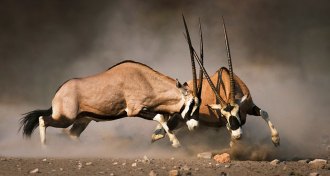 Animals
AnimalsFighting like an animal doesn’t always mean a duel to the death
Conflict resolution within species isn’t always deadly and often involves cost-benefit analyses.
By Susan Milius -
 Genetics
GeneticsAdapting to life in the north may have been a real headache
A cold-sensing protein has adapted to different local climates, also affecting risk of migraine.